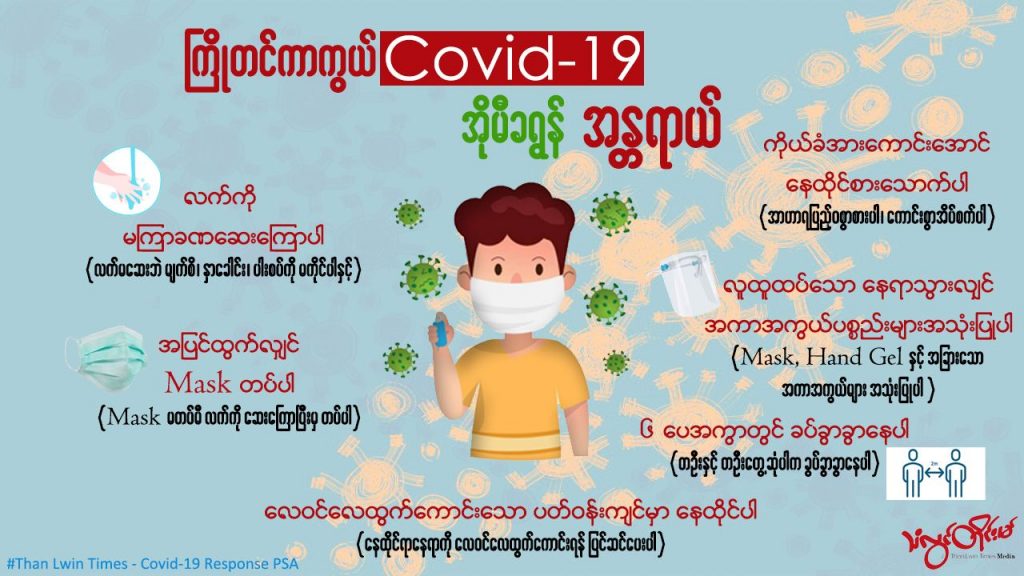Yangon, June 8
The divergent stances between supporters of the military regime and the revolutionary forces have raised concerns over the safety of civilians on both sides, said the political analysts.
Lily Naing Kyaw, a nationalist activist and singer who supports the military, was gunned down on May 30, a few days after U Tint Lwin, the founder of the Myanmar National Organization (MNO), was shot dead on May 26.
Lily Naing Kyaw was shot in Ward No. 2, Yanking Township, and died on the morning of June 6 after receiving medical treatment for almost a week.
Special Task Force – STF members, Ko Kaung Zarni Hein alias La Pyae, and Ko Kyaw Thura alias ET, were arrested by the junta at a dormitory in Kamayut Township on June 4 on suspicion of assassinating the singer.
The mother and sister of Ko Kaung Zarni Hein were arrested and killed by the nationalists and members of the Pyu Saw Htee militia group on the evening of June 6, the same day that Daw Lily Naing Kyaw died.

Veteran politician U Pe Than said, “In countries ruled by military dictators, the military framework has become wider than the political framework. Among them is a system where people form groups and take revenge. We are sorry for that. Only by a peaceful solution will we be able to end the chaos”.
According to the military council, former student leaders of the All Burma Federation of Student Unions (ABFSU), Ko De Nyein Lin and Ma Hazel, instructed their group to assassinate singer Lily Naing Kyaw.
Urban guerrilla forces used to claimed responsibility for some of the shootings, attacks, and explosions in urban operations, but no group has yet admitted to the death of singer Lily Naing Kyaw.
Some armed resistance groups that emerged after the military coup have been assassinating informants, administrators, and top department officials who supported the military council.
U Than Soe Naing, a political analyst, said: “These events are nothing compared to the killings, arrests, and imprisonments of the military council’s security forces. While the military council’s administration and security mechanisms are collapsing, we consider that the insecurity of the people is a consequence of the actions of the military regime”.
On the other hand, pro-democracy civilians and political activists who support and provide cash assistance to the anti-regime resistance forces are arrested and killed by the military council.
In addition, there are dozens of cases where family members associated with the People’s Defense Forces (PDFs) and National League for Democracy (NLD) representatives and party members were killed and their bodies dumped by junta-aligned militia groups such as Thwe Thout and Sun Ye.
Political analyst U Ye Tun (Hsipaw) pointed out that there is unrest and concern among supporters on both sides under this circumstance, and if the turmoil in the country continues for a long time, there will be even more concerns. Killing, detaining, and charging unrelated targets constitutes terrorism, regardless of who conducts it.
According to the Assistance Association for Political Prisoners (AAPP), more than 3,600 democracy activists and citizens who resisted the military coup were killed, and more than 18,000 are currently in custody.
According to the Yangon Regional Military Command, urban guerrilla groups and other revolutionary forces in Yangon carried out almost 2,000 missions between May 2021 and May 2023.
Revolutionary groups have attacked military, administrative, and economic targets, and the military council’s assaults have left more than 80 comrades dead and more than 1,000 captured.
News – Than Lwin Times
Photo: Social Media

